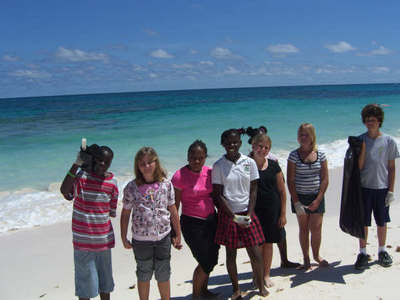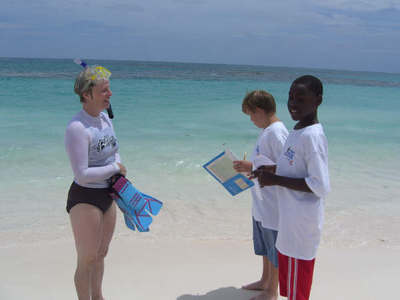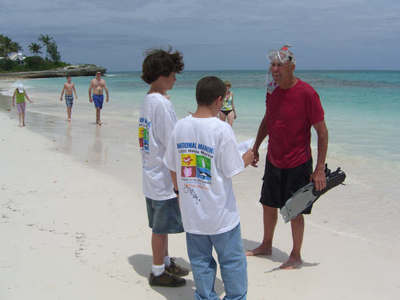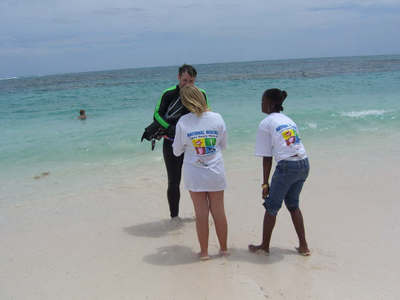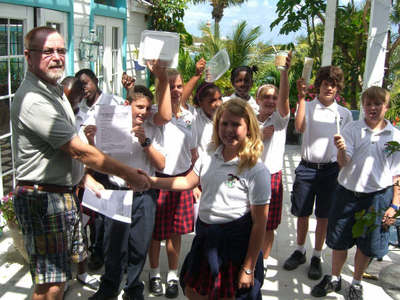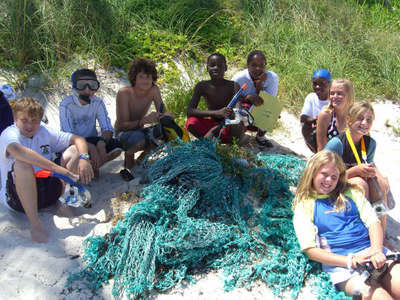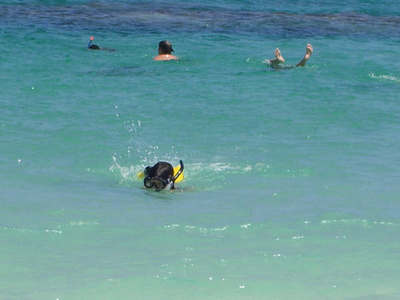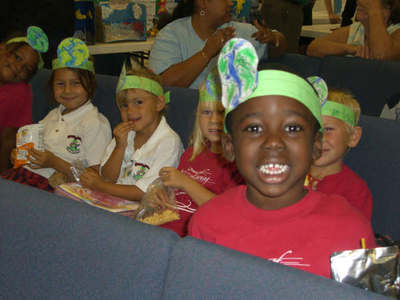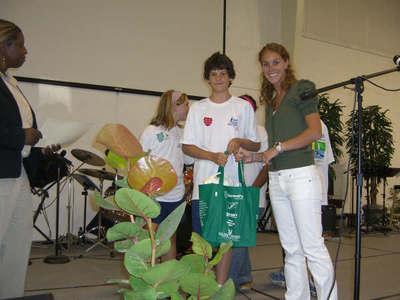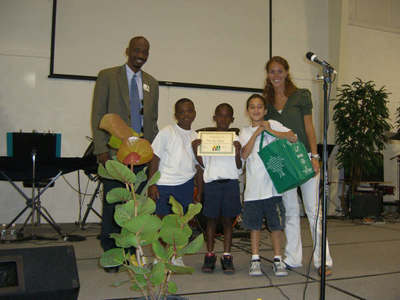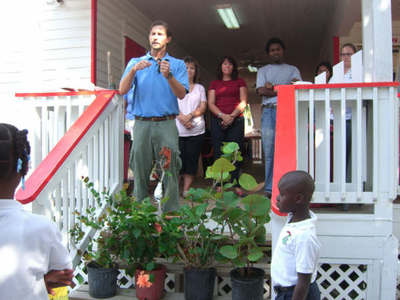The Reef Doctors are on call!
Hope Town school students in Grades 5 and 6 continue their work on their adopted Sandwatch patch of reef in front of their test site beach. We called ourselves 'Reef Doctors' as we gave the reef a good "check up'' by snorkelling out to observe first hand if any additional parts had been broken off by tourist snorkelling or if bleaching had began since we last cut the huge fishing net off last spring.
This spring the group of 10 students widened our work by first cleaning the debris off the beach after weeks of rage seas.
We then conducted interviews with tourists who had snorkelled on the reef about what they had observed on our reef. The tourists all expressed their pleasure that we students were ECO-STEWARDS. After conducting the interviews, we produced our second pamphlet (this time with illustrations) for use by tourists explaining how to enjoy the reef using sustainable practices. After weeks of rage seas, the reef appeared to be affected by bleaching. However; when our group snorkelled out to the reef we were relieved to see the reef was instead coated with a layer of sand deposited on to it by the pounding seas. We were disappointed when the tourists told us they were not seeing many species of fish.
When we went out to see firsthand, we did not see many species ourselves. We think it was because the whole Caribbean had been experiencing several weeks of very turbulent seas .
Since our reef is only 50 feet off the shore we believe the fish usually on the reef were seeking shelter in deeper waters. We will continue to monitor "our" reef for any changes Global Warming may bring. Hopefully we can keep it healthy to withstand any stress from climate changes.
Natasha Albury, Tiffany Senn, Brittant Sweeting, Aisha LeBrun, Kelly Blanc,Sheena Etienne, Sean Stevenson, James Boyce, Zack Key and Michael Blanc with teacher, Mrs. Candace Key, Sandwatch Coordinator. Abaco, Bahamas
Hope Town school students in Grades 5 and 6 continue their work on their adopted Sandwatch patch of reef in front of their test site beach. We called ourselves 'Reef Doctors' as we gave the reef a good "check up'' by snorkelling out to observe first hand if any additional parts had been broken off by tourist snorkelling or if bleaching had began since we last cut the huge fishing net off last spring.
This spring the group of 10 students widened our work by first cleaning the debris off the beach after weeks of rage seas.
We then conducted interviews with tourists who had snorkelled on the reef about what they had observed on our reef. The tourists all expressed their pleasure that we students were ECO-STEWARDS. After conducting the interviews, we produced our second pamphlet (this time with illustrations) for use by tourists explaining how to enjoy the reef using sustainable practices. After weeks of rage seas, the reef appeared to be affected by bleaching. However; when our group snorkelled out to the reef we were relieved to see the reef was instead coated with a layer of sand deposited on to it by the pounding seas. We were disappointed when the tourists told us they were not seeing many species of fish.
When we went out to see firsthand, we did not see many species ourselves. We think it was because the whole Caribbean had been experiencing several weeks of very turbulent seas .
Since our reef is only 50 feet off the shore we believe the fish usually on the reef were seeking shelter in deeper waters. We will continue to monitor "our" reef for any changes Global Warming may bring. Hopefully we can keep it healthy to withstand any stress from climate changes.
Natasha Albury, Tiffany Senn, Brittant Sweeting, Aisha LeBrun, Kelly Blanc,Sheena Etienne, Sean Stevenson, James Boyce, Zack Key and Michael Blanc with teacher, Mrs. Candace Key, Sandwatch Coordinator. Abaco, Bahamas
